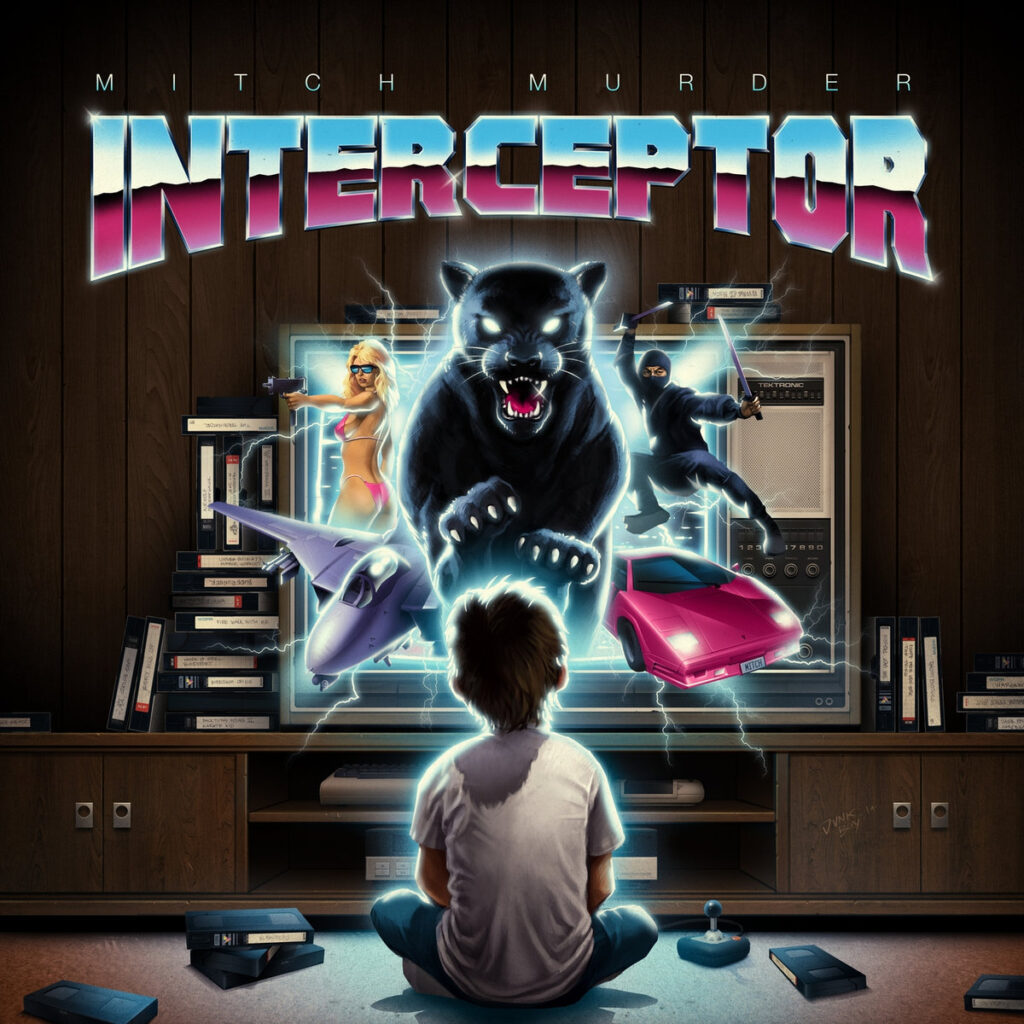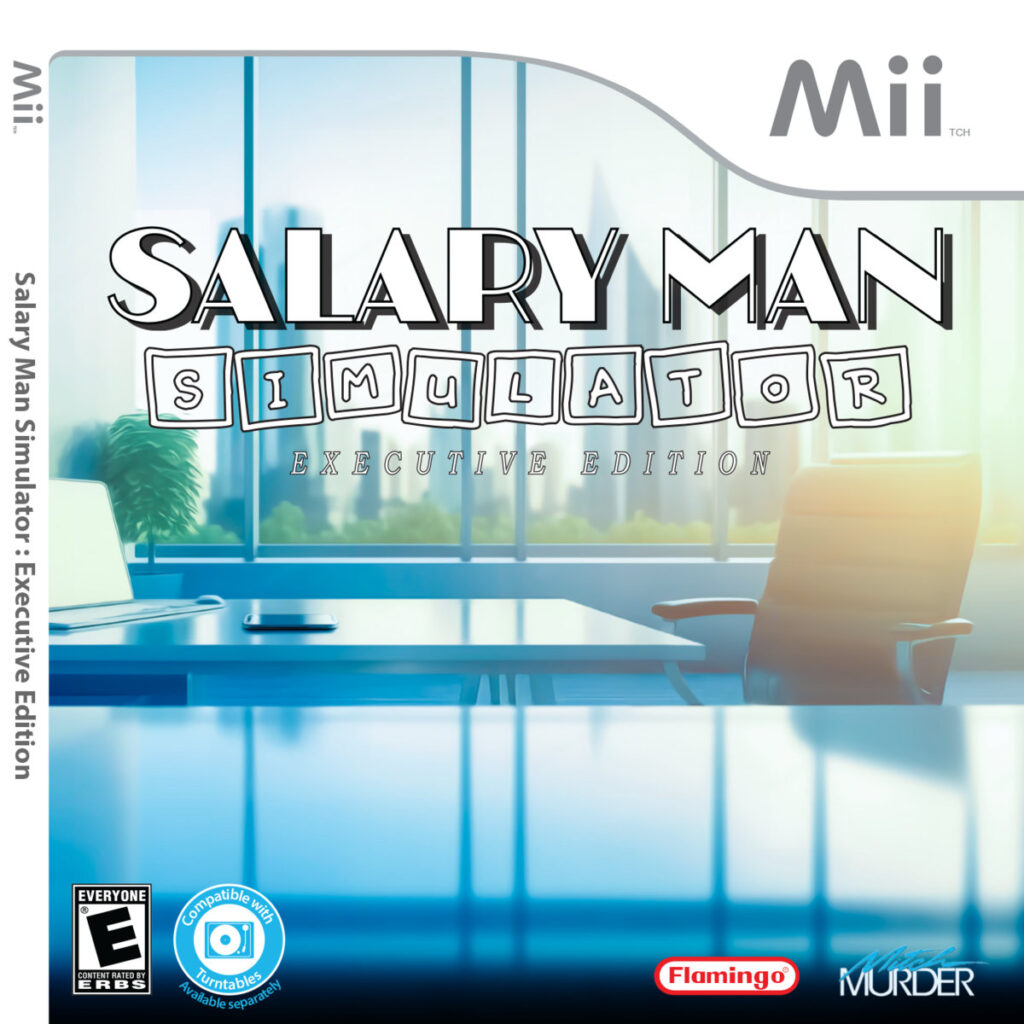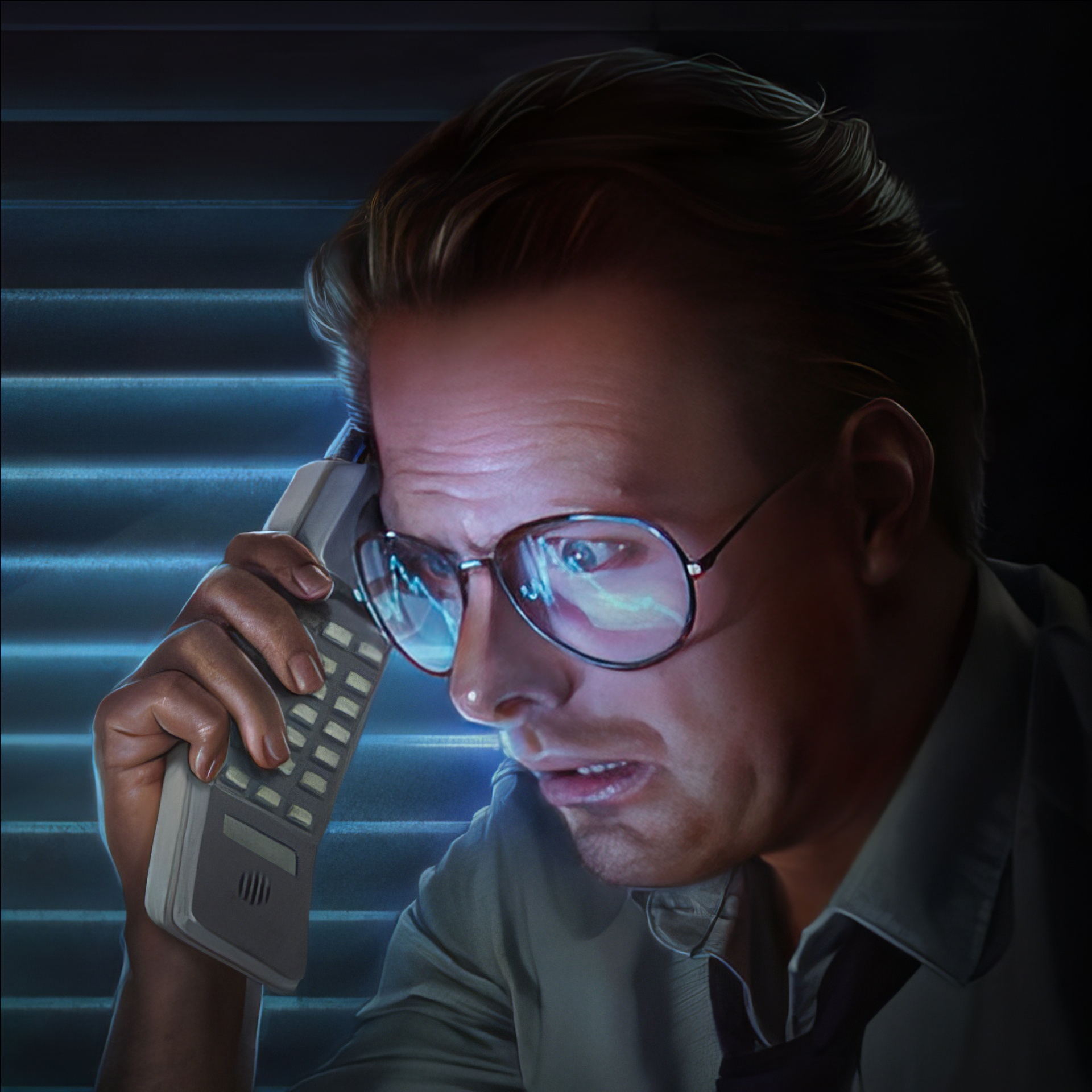In the history of Synthwave music, few names resonate like ‘Mitch Murder’; an artist whose captivating blend of nostalgic melodies and infectious grooves helped to shape the genre in its early days.
Enzo caught up with the artist recently to talk about his future plans, creative inspirations, and his recent MPF release – Salary Man Simulator; which saw his three ‘businesswave” mini albums cut to vinyl for the very first time.
They also touched on the enduring appeal of Synthwave, a genre that remains surprisingly vibrant, almost twenty years on from its creation.
Whilst Mitch – real name Johan Bengtsson – was far from alone in the early days of the scene in creating music that celebrated the neon-soaked era of the 1980s, his signature retro-futuristic soundscapes and pristine production have led to legendary status, alongside fellow pioneers Miami Nights 1984, Kavinsky and the Valerie Collective.
He even provided the soundtrack to the cult classic short film, ‘Kung Fury’, which featured ‘that’ collaboration with David Hasselhof. But for me – and for many other fans of the Synthwave sound – it’s his early classics ‘Current Events’, ‘Burning Chrome’, and ‘Interceptor’ that stand out as the high-water mark for the genre.

“I think initially it was fuelled by just pure 80s nostalgia, which spoke to a lot of Gen X and Millennials”, he explains, as we discuss the cultural impact of the scene.
“These days it’s different, and I don’t think the majority of new Synthwave acts have much interest in trying to sound ‘authentically 80s’ or anything like that.
“Most seem like they’re inspired by other Synthwave acts rather than actual 80s artists and producers.”
In some respects, more than a decade on, that feels like an inevitable evolution as new fans enter the fray, and producers tap into their own nostalgic reservoir – so to speak.
“I’ve even seen newer synthwave artists being concerned about their music sounding “too 80s”, which from a certain perspective I can understand, but is something I also find pretty funny, considering the origins of the genre.
“On the other hand, the fact that the genre is willing to change and evolve is probably the main reason why it’s still around, and still spawning new acts.”
I ask him why, from a cultural and historic perspective, he finds the 80s such a fascinating source of inspiration.
“It was just such an insanely creative decade, spawning so many interesting, fun and weird acts, genres, styles, fashion, design movements and whatever else.
“A lot of it is justifiably seen as awful and cheesy by most people and standards today – take the “Memphis Milano” style of interior design for example. It’s objectively pretty hideous looking, but that’s one of the reasons I love it.
“People dared to be weird and experimental in music, movies, fashion, design and so on, on a level that just wouldn’t be commercially viable today. Of course, the 80s had its drab mundanity as well. But at least to me, on the whole, it stands out in terms of creativity, in a wide variety of fields.”
That’s something I personally think about a lot, as a child of the 80s born in the United Kingdom.
The unfiltered nostalgia for the 80s that you get from shows like Stranger Things, or from watching classic American films from the era is a world away from the reality I recall, at least in everyday life.
But there was definitely something about the time that felt optimistic, at least in the creative industries. Almost as though the ‘West’ was trying to shake off the baggage of decades in the shadows of conflict and clinging onto the possibility of a brighter future.
You get a brooding sense of that cultural baggage in the track ‘In the News’ (2011), which was on the aforementioned ‘Current Events’.
Mitch Murder’s most recent vinyl release came with the Salary Man Simulator Eps – released as a collection on My Pet Flamingo in January.
They occupy a similar space to his 2016 EP, ‘The Real Deal’, which lent heavily into the corporate realm.
I wonder what it is about the ‘workplace’ and corporate aesthetic that appeals to so many artists.
“I’m not really sure why it speaks to people” he says, addressing the ‘Businesswave’ phenomenon.
“I just have a soft spot for the aesthetics displayed in late 80s and 90s corporate environments, and the training and product-videos with their library music-style soundtracks.
“I suppose in my case, sometimes it’s about wanting to infuse “soul” into something often perceived as very bland and lifeless. Other times it can be fun to just embrace the dull mundanity of it all. It honestly just depends on mood and what it is I’m currently working on.”
He tells me about a Swedish documentary from the late 90s, called Lucky People Center International:
“There’s this one segment featuring Toshiji Mikawa, a Japanese businessman who during the day is just a normal, everyday guy working at a bank, but then performs noise and power-noise music at night, transforming completely.
“I just thought the contrasts there were pretty funny and inspiring.”
As for the aesthetic itself, and the thinking behind that:
“If you look at my Soundcloud profile picture of the guy in a suit leaning against an old computer monitor, the initial idea behind picking him, and every other subsequent businessman-type figure I’ve used to represent me (like on the covers of several of my EPs) was because I wanted the listener to be primarily focused on my musical output, rather than on the individual behind the music, and the most anonymous, uninteresting ‘avatar’ I could think of at the time was this generic accountant or businessman, who could also act as sort of a blank canvas for basically any genre of music.”
The soundscapes and subject matter in Salary Man made it a perfect fit for our Vaporwave focused label, My Pet Flamingo – rather than TimeSlave Recordings, which focuses on pure Synthwave and Outrun music.
That said, it that instantly recognisable Mitch Murder sound, even if it marked a slight departure from the energetic, driving sound of some of his earliest albums.
It’s pristine, super hi-fidelity, and perfectly evokes the Wii aesthetic from a sound palette perspective.
“On Salary Man Simulator 1 I limited myself to only using a single sound library for the entire thing, with almost no added effects, in an attempt to be as “authentic” as possible.
“There’s not a whole lot going on there mixing-wise either, which is very different to how I usually work. On (Volumes) 2 and 3 I gave myself more liberties with the synth and sound selections, so they’re more traditionally Mitch Murder in that sense, with more attention put on the mix; while still trying to retain some of the Wii vibe.
“Generally though, when I’m doing these fake video game OSTs I tend to be less precise compared to when working on regular material. It’s more like a ‘stream of consciousness’ exercise where I’ll just do the first thing that comes to mind, and then instantly move on to the next track.
“The only outlier is my most recent fake OST “Pit Stop Hero”, which I put some extra thought and mixing efforts into.”
It’s not the first time he’s worked on ‘fake game’ OSTs – or real ones for that matter. It’s clear from his back catalogue that there’s a strong personal connection with gaming.
“I’ve been playing games basically since birth, and never really stopped, so it has definitely shaped my sound in various ways. Particularly the 16- and 32-bit console era, as well as 80s and 90s PC gaming, along with computer culture phenomena like the old Amiga and PC demo scene.
“I also love working on projects around a single theme or idea, so composing game OSTs really suits me, whether it’s for actual games or just ones I made up.”

He once said that he’d probably never stop making 80s inspired music. I ask him if that statement still holds true.
“Over the past year or so, besides the sporadic synth tunes here and there, I’ve put out two drum and bass releases (with another one on the way) and a smaller 90s house EP.
“It’s fun to switch it up every now and then and currently I’m very much in a mid to late 90s video game type of mood, but no, I’ll likely never stop making 80s inspired synth music in one way or another.”
What better place to end than with the Synthwave scene that he helped to start…
I ask if he still follows it closely.
“I wouldn’t really say I keep up with (it) much anymore, even though I still dip my toe in the genre from time to time.
“Most people know me as a synthwave act mostly because of the stuff I put out 10-15 years ago, when the genre was still blowing up and the whole 80s retro movement was still reaching its peak.”
‘Salary Man Simulator’ is available on Mitch Murder’s Bandcamp, and on vinyl via My Pet Flamingo.
Written by Enzo Van Baelen

One response to “One To One With Mitch Murder: Talking Nostalgia, ‘Businesswave’ & the Enduring Appeal of the 80s”
I sometimes think about the same segment from the Lucky People Center International documentary https://www.youtube.com/watch?v=K-Iytc1Bnb8